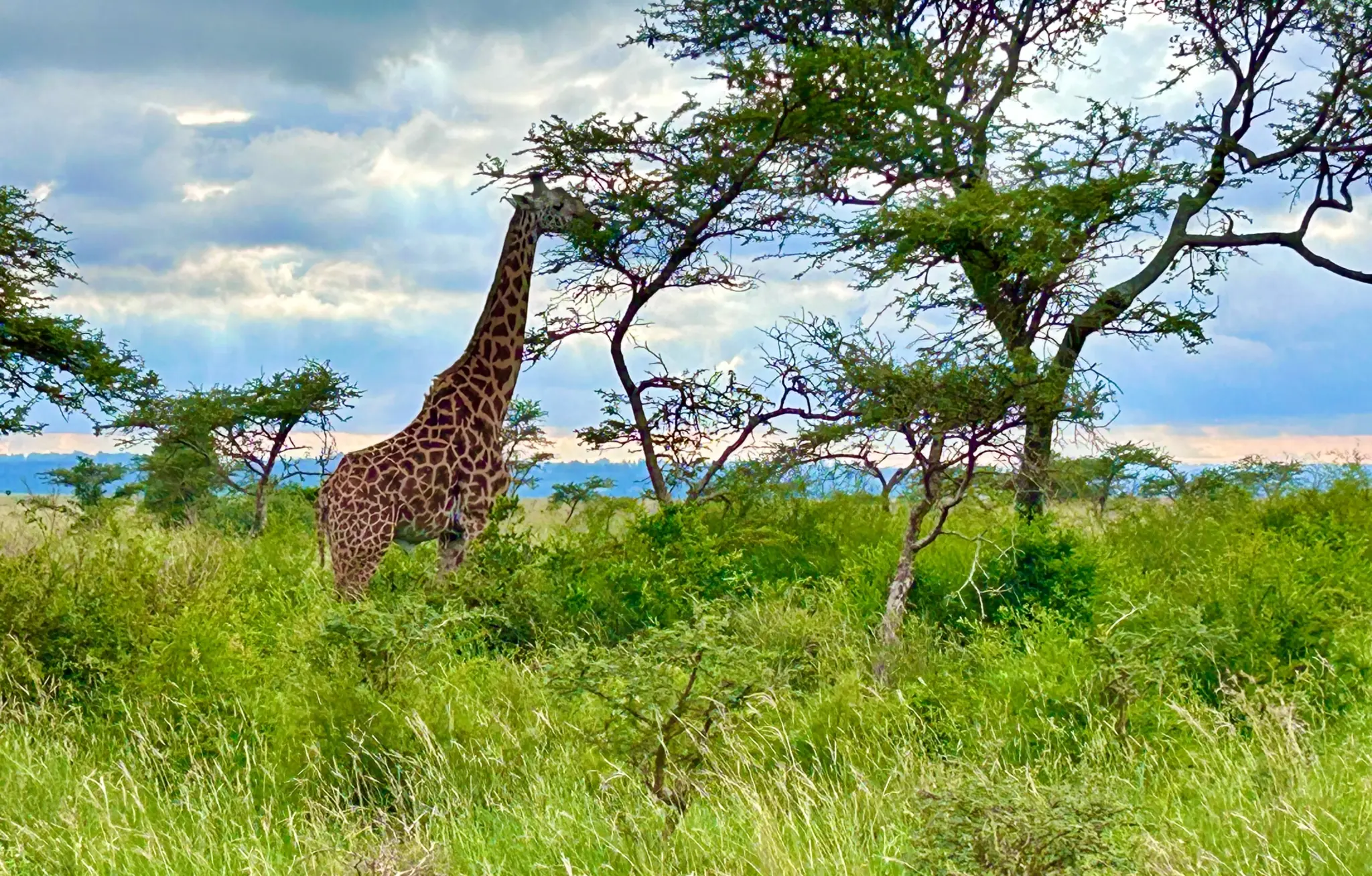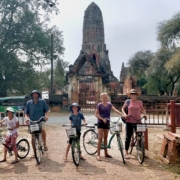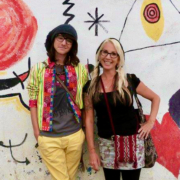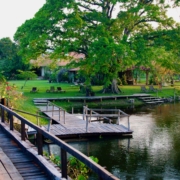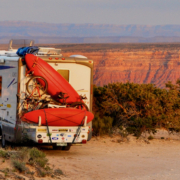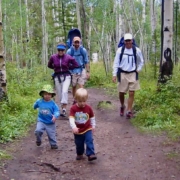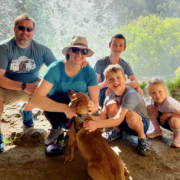Planning a Family Trip to Africa
We have a dear friend who invited us to her wedding this June. We were so excited to witness her special day and meet her family. The only plot twist is that she is from Kenya, and her wedding celebration centers around the dowry ceremony in her hometown. For the past year, I’ve been slowly planning a family trip to Africa and have learned that this journey has some unique considerations. I’ve followed family travelers to the region on Instagram, talked to others who have traveled there, and have been reading up as much as possible. This blog post will share some of my planning research in the hopes that it will help others.
Africa Is a Diverse Continent, Not a Country
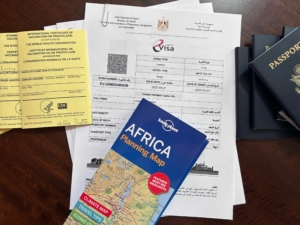
Shots and visas and passports, oh my!
When you browse the shelves of the travel sections, you might find a book on family travel in Tuscany or cycling through Vermont, books that hone in on the specific mode or geographical area. However, when it comes to African countries, they tend to be clumped in travel books that try to cover the entire continent. I can’t recall a guidebook that tries to cover all of Asia, but you do see guidebooks for the entirety of Africa.
I can only guess the cause of this different treatment: not enough travelers to warrant the specific country or regional guides? Ignorance that Africa is not a country but a diverse continent? Maybe a bit of each. Yes, you read that right: many Americans believe that Africa is a country, and many others can only name three or four countries on the continent. For this and many other reasons, African countries are prime for worldschooling opportunities
Our family’s go-to guidebooks are Lonely Planet, and they do have specific country guides to the two countries we will visit this summer.
Learn More Before You Go
The Global North and ChatGPT (yes, I’ve been playing around with it) have a lot to learn about Africa. As a credentialed social studies teacher, I’ve found that most American students learn about Ancient Egypt, colonization and the triangle trade, apartheid, and basic geography. Some newer textbooks include sections on ancient kingdoms of Ghana and Mali. So, there are huge gaps in how modern history is taught. One way to fill those gaps is to read some of these fantastic and award-winning books for young people to learn from this diverse continent.
For the younger reader
Black Gold by Laura Obuobi and London Ladd is one of my favorite picture books, as well as Water Hole Waiting by Jane Kurtz, co-authored with her brother Christopher Kurtz. The Anna Hibiscus early reader series by Atinuke, based in Nigeria, is wonderful. This depiction of extended family compound life and the relatable trials and tribulations of a young girl and her raucous younger brothers will begin to set context for modern life in Western Africa.
For middle school students
There are three books that detail the modern refugee. There’s the National Book Award-winning graphic novel, When Stars are Scattered by Victoria Jamieson, Omar Mohamed, and Iman Geddy; Long Walk to Water by Linda Sue Park; and Lost Girl Found by Laura DeLuca and Leah Bashoff.
For high schoolers and older
Older kids might appreciate Things Fall Apart by Chinua Achebe, or the nonfiction emigration story half set in Ethiopia, Cold, White Sun, by Sue Farrell Holler. Zimbabwean author Tsitsi Dangarengba has two wonderful and award-winning semi-autobiographical novels suitable for YA readers, Nervous Conditions and The Book of Not. Violet Bulawayo’s We Need New Names will also leave you changed. Trevor Noah’s Born A Crime is an insider’s look at race relations and growing up in South Africa. Available on audiobooks, his masterful telling would work well for PG-13 and above.
I’ve also found this wonderful booklist created and peer-reviewed by Social Justice Books.
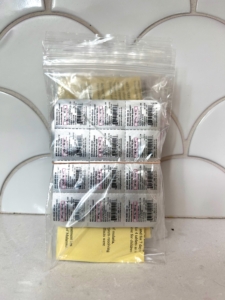
Can we enter with these Ziplocs?
Immunizations and Health
When we arrived at our local Passport Health travel clinic here in Colorado, we were presented with a long list of decisions. Malaria medication? The rabies series? Typhoid as pills or shots? This is a very different set of questions than you’d face for a trip to Europe, Australia, or Central America. When we told the nurse we would be staying in a suburb of Nairobi to attend a wedding, her eyes got wide. She offered us broad-spectrum probiotics, antibiotics to carry just in case, and digestive guards to take for the one week we were staying and eating in a smaller town that does not cater to Westerners. We then told her we would continue on to Egypt, she admonished us to not even THINK about swimming in the Nile. Schistosomiasis, she said. In all seriousness, she described snails that enter your skin and worms that penetrate your feet.
Many countries that have active Yellow Fever outbreaks require this vaccination both to enter and exit. I’ve never heard of anyone testing the system with a vaccine waiver, but I’d love to learn more.
These warnings might make some think twice about travel to Africa, but I look to Instagram and see families like the @traveling_zolks, @house_of_bey_family, @tinboxtraveller, and @awaywiththesteiners to ground myself in perspective here. I’ve also been to regions with similar health risks and realize that with some research and maintaining good health prior to arrival, most places are just fine to visit. Our stomachs are stronger than we think, and quick action if symptoms begin can head off most issues.
Credit Card Fraud and Entry Visas
Be sure to give yourself plenty of time to organize entry visas and make sure your credit cards will work. While I was trying to pay online for our entry visas, my bank kept declining the charges. After the third or fourth round, I needed to be on the phone with my credit card company to pay for the visas from the government website. These protections are put into place for good reason, I’m sure, but be aware that it’s imperative to let your credit card company know your travel plans and be ready for some extra calls while you’re planning your trip.
The Egyptian visa service warned of fraudulent sites that charge you high rates for fake visas.
[Update: the visa “service” we used was actually a scam! They were the first hit that came up on google, asked all the right questions, asked for new photos without glasses, and charged the correct amounts. At the final hour, when our service disappeared and we had no visas, our safari company pushed our new visa applications through. Check, check, check and do some online searches to make sure your service is legit.]
Visiting Wild Animals is Expensive
Once we decided to go to Kenya, I was shocked at the cost of the safari. The more I researched, the more I understood why you get what you pay for. The high cost of good safaris pays for the conservation of the wild spaces and animals.
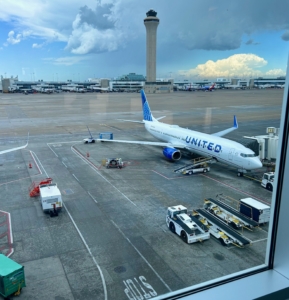
Planning done, the journey begins.
This privilege is confusing. Our Kenyan friends have never been to Masai Mara or the Sheldrick Elephant Orphanage just 30 minutes from their home. But if you look at any travel plan to Kenya, both places are in every list of top 5 things to do in Kenya. So, if Westerners didn’t come to pay the high prices, a key source of funding for care and conservation would dry up. But the high prices keep the locals from seeing their own country. What would you do?
I’ve been reading that African conservation areas were some of the hardest-hit places during COVID because most funding comes from tourism. So, although I’m still questioning my own ethics, we’ve decided to visit Sheldricks WITH our Kenyan friends and we are going to Ol Pejeta Rhino Preserve and Masai Mara after the dowry festivities. We will pay for mid-range safari camps with open eyes, try to understand how sustainable travel practices help preserve wild spaces, and look for ways to make this safari more inclusive.
Poverty and Economic Disparity
Africa, like many other parts of the world, can put the Western traveler face-to-face with economic disparities. Africa is home to some of the wealthiest individuals as well as some of the world’s poorest and fastest growing economies. Travelers are often surprised by the modern cities and high tech malls, as well as children begging with little on their backs. We are expecting our stereotypes to be challenged. We are researching some NGOs to visit, like Ubuntu Life, and will participate for the first time with Pack for a Purpose. We are ready to shake up our worldviews, break open our stereotypes, and ask some hard questions.
Packing
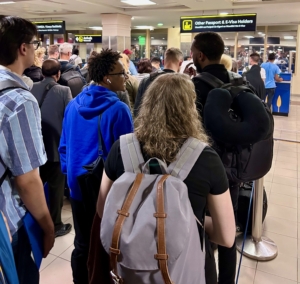
Sleepily arriving at passport control in Kenya.
Packing for this region has some unique considerations. I’ve read that wearing blue and black colors can attract the tsetse fly, which can harbor sleeping sickness and other health concerns. Bright colors, including white, can make the wild animals notice you and change their behavior. So, I guess there is a reason to wear that stereotypical khaki. A professional travel guide turned me on to Travel Fashion Girl website, which offers practical ideas like these to get you started.
You might need more warm layers than you think. Don’t assume you’ll be hot every second, as many wildlife viewing areas are at high altitude, and deserts get cool at night. Also, in many areas, especially Muslim regions, women need to cover shoulders, knees, and collar bones to be culturally sensitive. We are bringing scarves to cover our female heads for visits to holy sites, although I’m sure we can buy them there. In many more areas showing more skin can attract unwanted attention, not to mention a sunburn. We are currently hunting for breathable long sleeves and pants, and packable wide-brimmed hats.
Sometimes you also need to know what NOT to pack. Some of the world’s strictest bans on single use plastic are found in Africa. Rwanda and Kenya have luggage searches when you enter the country. Our safari company told us that they have heard of tourists being fined for bringing plastic bags into the country! Although we love and support the concept, I often travel with a few ziplocs around toiletries. Many other African countries, like Morocco and Tanzania, have partial bans and fines. I appreciate the exercise of rethinking these packing habits.
I can’t wait to share our journey to Kenya and Egypt real-time on social media and as stories from the road in this blog. Planning this trip to Africa is getting me more and more excited and interested in this diverse continent. Kenya and Egypt have long been on a someday bucket list, but an invitation to a dowry ceremony moves it to now, to once-in-a-lifetime, to “hang the cost” and we’ll figure out how to pay for it later. As a returned Wonder Year family, we’ve worldschooled and traveled to Central America, Asia, and Europe, but Africa, South America and Antarctica are still open for discovery. How easy will it be to slip into our old full-time traveling family personas? How different will it be to travel with older teens? How will this time in Africa change my worldview?
